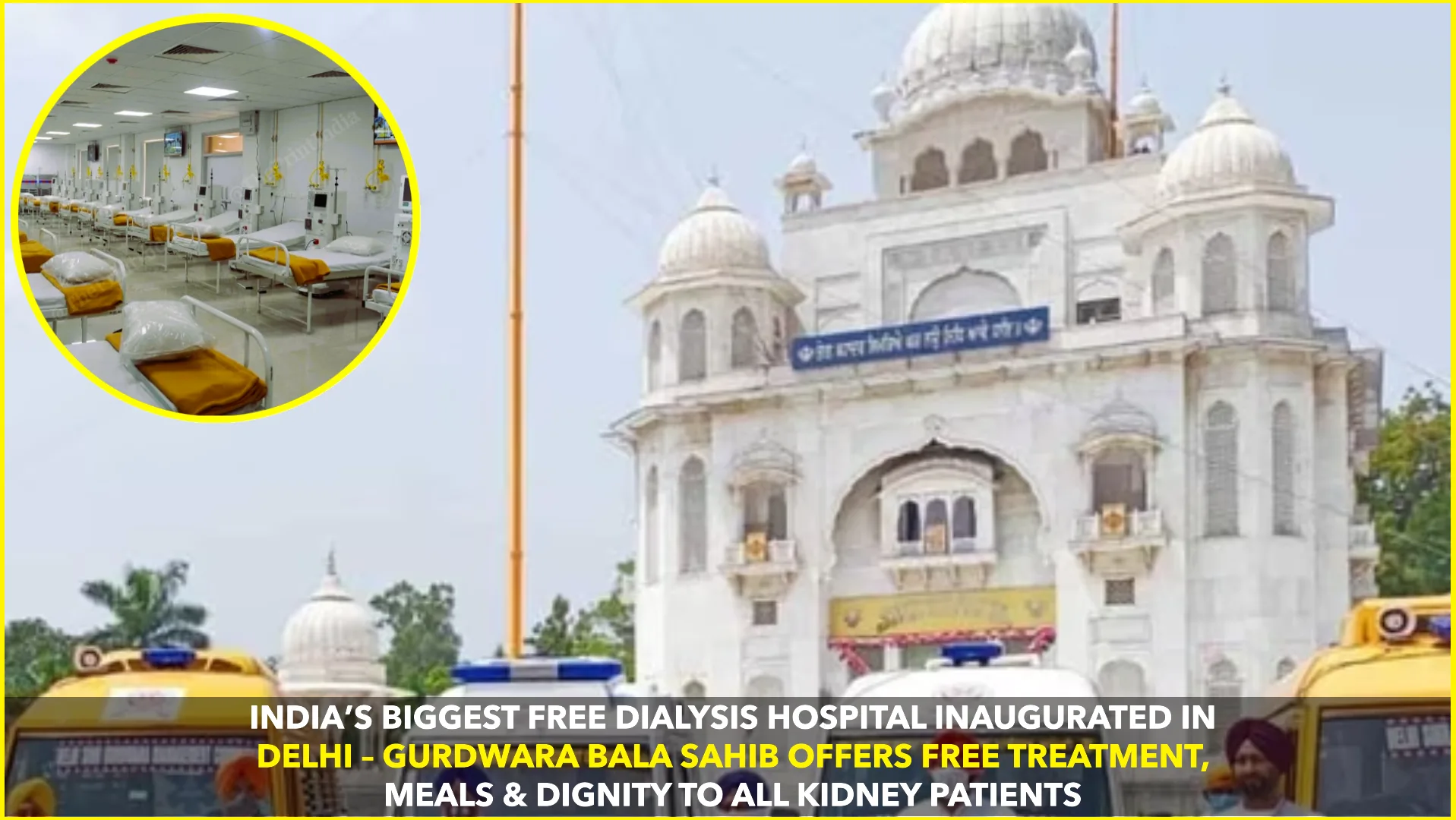New Delhi, 2025 – In a groundbreaking initiative blending healthcare with humanity, India’s largest kidney dialysis hospital has been inaugurated at Gurdwara Bala Sahib in Delhi. The facility, established under the aegis of the Delhi Sikh Gurdwara Management Committee (DSGMC), is offering completely free dialysis treatment and nutritious meals to all patients—regardless of caste, religion, or economic status.
With over 500 state-of-the-art dialysis machines, this charitable hospital has become a beacon of hope for patients suffering from chronic kidney disease, particularly those unable to afford the high cost of regular dialysis sessions. The average cost of a single dialysis session in India ranges from ₹1,500 to ₹3,000, making long-term treatment unaffordable for lakhs of low-income families.
The facility has been built within the premises of Gurdwara Sri Bala Sahib Ji, one of Delhi’s most prominent Sikh shrines. It is designed to accommodate over 1,000 patients daily, operating around the clock with a team of trained doctors, nurses, and technicians.
“This hospital is a reflection of the Sikh principle of seva (selfless service). No one should suffer due to lack of money. Here, patients will receive not only free dialysis but also free meals (langar), medication, and care in a dignified environment,” said Harmeet Singh Kalka, President of DSGMC.
Funded entirely through donations from the Sikh community and philanthropists, the hospital ensures zero financial burden on patients, many of whom are referred by government hospitals and NGOs. The dialysis units are equipped with high-efficiency machines, backed by robust infection control protocols, emergency care services, and regular monitoring systems.
Inaugurating the hospital, Union Health Minister Dr. Mansukh Mandaviya praised the Sikh community’s contribution to healthcare and said, “This model should inspire private and public sectors alike. It shows how religious institutions can bridge the gap in public health infrastructure.”
Patients and families have welcomed the initiative with gratitude. 58-year-old Ramesh Kumar, a retired factory worker undergoing dialysis, said, “I was spending nearly ₹10,000 per week on treatment. This free hospital has saved my life.”
In addition to treatment, the hospital also offers counseling services, dietary guidance, and plans to launch home dialysis training for families who cannot commute frequently.
Medical experts estimate that over 2 lakh Indians need dialysis regularly, but only a fraction receive consistent care due to cost and facility shortages. This hospital is expected to significantly improve access and awareness in the northern region.
The Sikh community, known for its charitable kitchens and humanitarian services during disasters, has once again set an example of compassion-driven action. With this hospital, they are not just treating a disease, but restoring dignity and life to thousands in need.










